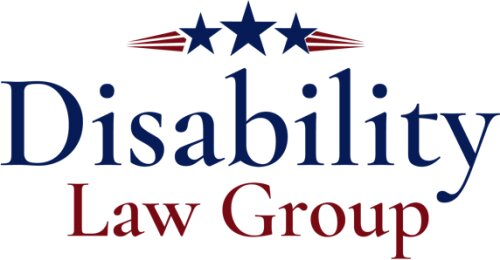Best Lawsuits & Disputes Lawyers in West Virginia
Share your needs with us, get contacted by law firms.
Free. Takes 2 min.
Or refine your search by selecting a city:
List of the best lawyers in West Virginia, United States
About Lawsuits & Disputes Law in West Virginia, United States
Lawsuits and disputes law in West Virginia covers the rules and procedures for resolving conflicts between individuals, businesses, or entities that cannot settle their differences outside of court. This area of law encompasses civil litigation, which may include contract disputes, personal injury claims, property disagreements, landlord-tenant issues, and more. The primary goal is to offer a legal remedy or settlement to parties involved in disagreements. Courts in West Virginia provide structured avenues for both parties to present their cases, ensuring fair treatment under state law.
Why You May Need a Lawyer
There are various situations where seeking legal assistance in lawsuits and disputes becomes crucial. Common scenarios include:
- Contract disputes where parties disagree over the terms or fulfillment of an agreement.
- Property disputes involving real estate boundaries, ownership, or damage.
- Personal injury cases due to accidents, such as car crashes or workplace injuries.
- Business disputes including partnership disagreements or issues with clients or vendors.
- Landlord-tenant conflicts such as eviction, deposit return, or lease disputes.
- Claims of financial loss due to negligence or breach of duty.
- Disagreements related to debt collection and payments.
A lawyer ensures you understand your rights, guides you through complex legal processes, helps to gather evidence, and represents your interests in negotiations, mediation, or court.
Local Laws Overview
West Virginia follows specific rules and statutes that govern lawsuits and civil disputes. Some key aspects include:
- Statute of limitations: There is a limited window to file a lawsuit, varying by case type. For example, personal injury lawsuits typically must be filed within two years of the incident.
- Comparative fault rule: In cases like personal injury, West Virginia uses a modified comparative fault rule. If you are partially at fault for the damages, your recovery may be reduced proportionally, and if you are found more than 50 percent at fault, you may be barred from recovering damages.
- Small claims court: For disputes involving smaller monetary amounts (up to 10,000 dollars), cases may be handled in Magistrate Court, designed to be more accessible to the public without needing full legal representation.
- Mediation requirements: Courts often encourage or require alternative dispute resolution, such as mediation, before proceeding to trial.
- Filing process: Lawsuits must be filed in the appropriate court, with all paperwork and court fees submitted according to state procedures. Local rules can differ by county.
- Legal representation: There is no guarantee of a court-appointed attorney in most civil matters, so parties are generally responsible for hiring their own lawyers.
Understanding these local rules helps ensure that cases are handled efficiently and that parties do not inadvertently lose their rights.
Frequently Asked Questions
What types of disputes can I file a lawsuit for in West Virginia?
You can file lawsuits for a variety of civil matters, including personal injury, contract breaches, property damage, landlord-tenant issues, boundary disputes, defamation, and other monetary claims.
How long do I have to file a lawsuit after an incident occurs?
The statute of limitations varies by case type. Generally, you have two years from the date of injury or discovery of harm for personal injury cases, and different timeframes apply for contract, property, or other claims.
Do I need a lawyer to file or defend a lawsuit?
While you are not legally required to have a lawyer for most civil cases, legal representation can be beneficial due to the complexity of court processes and laws. In small claims court, many individuals represent themselves.
What is the difference between Magistrate Court and Circuit Court in West Virginia?
Magistrate Court handles civil cases up to 10,000 dollars, landlord-tenant matters, and other smaller disputes. Circuit Court deals with larger, more complex civil actions, and appeals from lower courts.
Is mediation required before trial?
Many courts in West Virginia require parties to attempt mediation or another form of alternative dispute resolution to resolve their dispute before a formal trial begins.
How long does a lawsuit typically take in West Virginia?
The timeframe varies by case complexity. Small claims may be resolved within a few months, while more involved cases can take a year or more, especially if they go to trial.
What can I do if I lose my case?
Depending on the type of court and the details of your case, you may have the right to appeal to a higher court. There are strict deadlines for filing appeals.
Can I recover legal fees if I win my case?
Generally, each party pays their own attorneys’ fees unless a contract states otherwise, or a specific law allows for fee recovery.
What happens if the other party does not follow the court’s decision?
You may go back to court to enforce the judgment, which can include wage garnishment, liens against property, or other collection methods authorized by law.
Are there resources for people who cannot afford a lawyer?
Yes, legal aid organizations and some bar association programs offer free or reduced-cost legal services for those who qualify.
Additional Resources
If you need more information or assistance with lawsuits and disputes in West Virginia, consider these resources:
- West Virginia Judiciary - for court forms, rules, and local court information
- Legal Aid of West Virginia - provides free legal help to qualified residents
- West Virginia State Bar - lawyer referral services and consumer legal information
- Local court clerks - offer public access to court records and procedural guidance
- West Virginia Attorney General’s Consumer Protection Division - for fraud or consumer disputes
Next Steps
If you are facing a lawsuit, dispute, or think you may need to file a claim in West Virginia, begin by:
- Gathering all relevant documents and evidence related to your dispute
- Identifying key deadlines, such as the statute of limitations for your case
- Contacting a qualified attorney for a consultation, especially if the matter is complex or involves significant amounts of money
- Reaching out to local legal aid or bar association services if you need assistance finding or affording a lawyer
- Reviewing available resources from the West Virginia Judiciary to familiarize yourself with court procedures
Taking prompt and informed action can help protect your rights and strengthen your position in any lawsuit or dispute proceedings in West Virginia.
Lawzana helps you find the best lawyers and law firms in West Virginia through a curated and pre-screened list of qualified legal professionals. Our platform offers rankings and detailed profiles of attorneys and law firms, allowing you to compare based on practice areas, including Lawsuits & Disputes, experience, and client feedback.
Each profile includes a description of the firm's areas of practice, client reviews, team members and partners, year of establishment, spoken languages, office locations, contact information, social media presence, and any published articles or resources. Most firms on our platform speak English and are experienced in both local and international legal matters.
Get a quote from top-rated law firms in West Virginia, United States — quickly, securely, and without unnecessary hassle.
Disclaimer:
The information provided on this page is for general informational purposes only and does not constitute legal advice. While we strive to ensure the accuracy and relevance of the content, legal information may change over time, and interpretations of the law can vary. You should always consult with a qualified legal professional for advice specific to your situation.
We disclaim all liability for actions taken or not taken based on the content of this page. If you believe any information is incorrect or outdated, please contact us, and we will review and update it where appropriate.
Browse lawsuits & disputes law firms by service in West Virginia, United States
West Virginia, United States Attorneys in related practice areas.
Browse lawsuits & disputes law firms by city in West Virginia
Refine your search by selecting a city.










